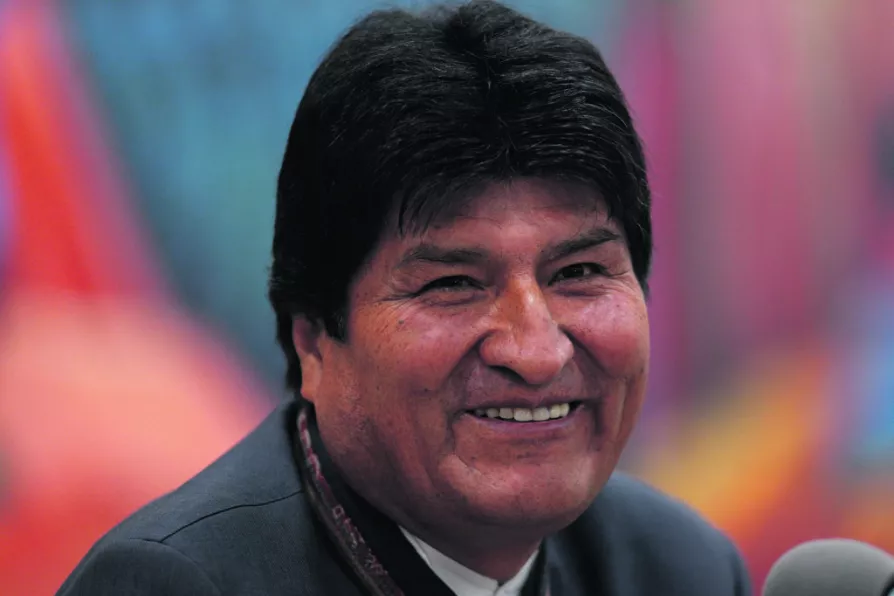Viva Evo - Morales wins!
THE Trump administration increasingly has ‘regime change’ in mind when it comes to Bolivia, writes Tim Young

 Bolivian President Evo Morales
Bolivian President Evo Morales
Evo Morales has won a clear victory in the Bolivian presidential election. Morales, leader of the Movement to Socialism (MAS), gained 47.07 percent of the nation’s popular vote, enough to put him 10 percentage points above his closest rival, Carlos Mesa who gained 36.51 percent of vote
Under the constitution, by winning at least 40 per cent of the vote and 10 per cent more than the second candidate Morales is declared the winner without the need for a second run-off round of voting.
Movement for Socialism has also won majorities in both the Chamber of Deputies and the Senate.
Similar stories

The US is desperate to stop Honduras’s process of social and democratic change, writes TIM YOUNG













